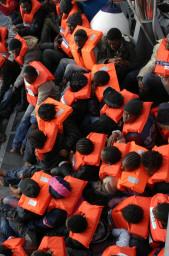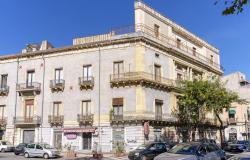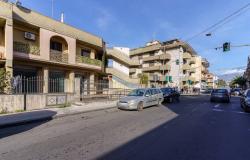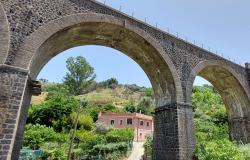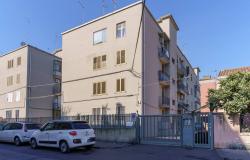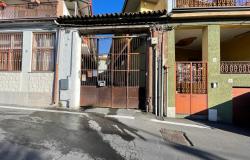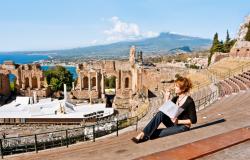Italy will begin repatriating illegal immigrants who arrive by boat on the country's southernmost islands on Tuesday evening, Italian officials said.
Police said 38 Egyptians who arrived on the island of Lampedusa in the last few days will be flown back to Cairo thanks to a bilateral accord between Egypt and Italy.
On Monday Interior Minister Roberto Maroni announced the policy of immediate repatriation for illegal immigrants whose nationality could be ascertained after more than 2,000 people travelled from the Libyan coast to Lampedusa and its neighbouring island of Linosa since Christmas.
Lampedusa's migrant centre, which has a capacity for 800 people, has been repeatedly pushed to bursting point over the last year, and in the past immigrants have been transferred to other centres on the mainland.
But Maroni said immigrants who arrive on the island should remain there before being sent home, adding that he had ordered the setting up of a centre on Lampedusa tasked with identifying and expelling arrivals.
Nevertheless, around 500 immigrants, including many minors who cannot be repatriated, were transferred to the Italian mainland on Monday and Tuesday to be sent to other centres.
Maroni's repatriation plans have come under fire from the United Nations Refugee Agency (UNHCR), who warned the minister to guard against ''mass expulsions'', recalling that ''the rights of asylum seekers must be protected'' under international treaties.
Opposition Democratic Party MP Jean-Leonard Touadi also hit out at the policy.
''Repatriation is against international law and human dignity, as well as being incredibly burdensome on the nation's coffers,'' he said.
ARCI, a left-leaning association involved in charity work, recalled that over 60% of foreigners arriving on Lampedusa are asylum seekers and warned that Italy was condemned by the European Court of Human Rights in 2005 for a similar deportation initiative.
According to UNHCR, some 33,000 illegal immigrants have arrived in Italy by sea in 2008 - an increase of more than 50% compared to last year's figures.
TRIPOLI 'UNABLE' TO HALT MIGRANT FLOW.
Maroni has meanwhile promised patrols of the Libyan coastline, the point of departure for many African migrants, by the end of January.
Libyan patrols designed to intercept migrant boats were originally part of a December 2007 deal between the Italian and Libyan interior ministries but a series of disagreements since then has blocked the process.
Maroni said the areas of contention in the December 2007 deal were being ironed out, while a separate bilateral agreement signed in August would be ratified by parliament shortly.
But on Tuesday Libyan authorities said that while they are worried about the number of African migrants departing the country's shores for southern Europe, they feel unable to tackle the problem.
Most affected are countries such as Italy and Malta, which stand on the southernmost border and serve as a gateway for migrants seeking to enter the EU from North Africa.
During a Monday meeting in Tripoli, Libya's European Affairs Minister Ramadan Bark said his government was keen to halt the flow but lacked the means to do so, according to diplomatic sources.
Meeting with representatives from Italy, Malta, the European Union and the bloc's border agency Frontex, Bark said Libya needed at least 300 million euros if it was to effectively control its desert frontier in the south, the sources said.
Bark said Libya was still waiting to receive funds earmarked for this purpose under a July 2007 memorandum of understanding between Tripoli and the EU.
The meeting was organized by France as duty EU president in order to address a situation that sees thousands of Africans from across the continent pass through Libya each year en route to Europe.
